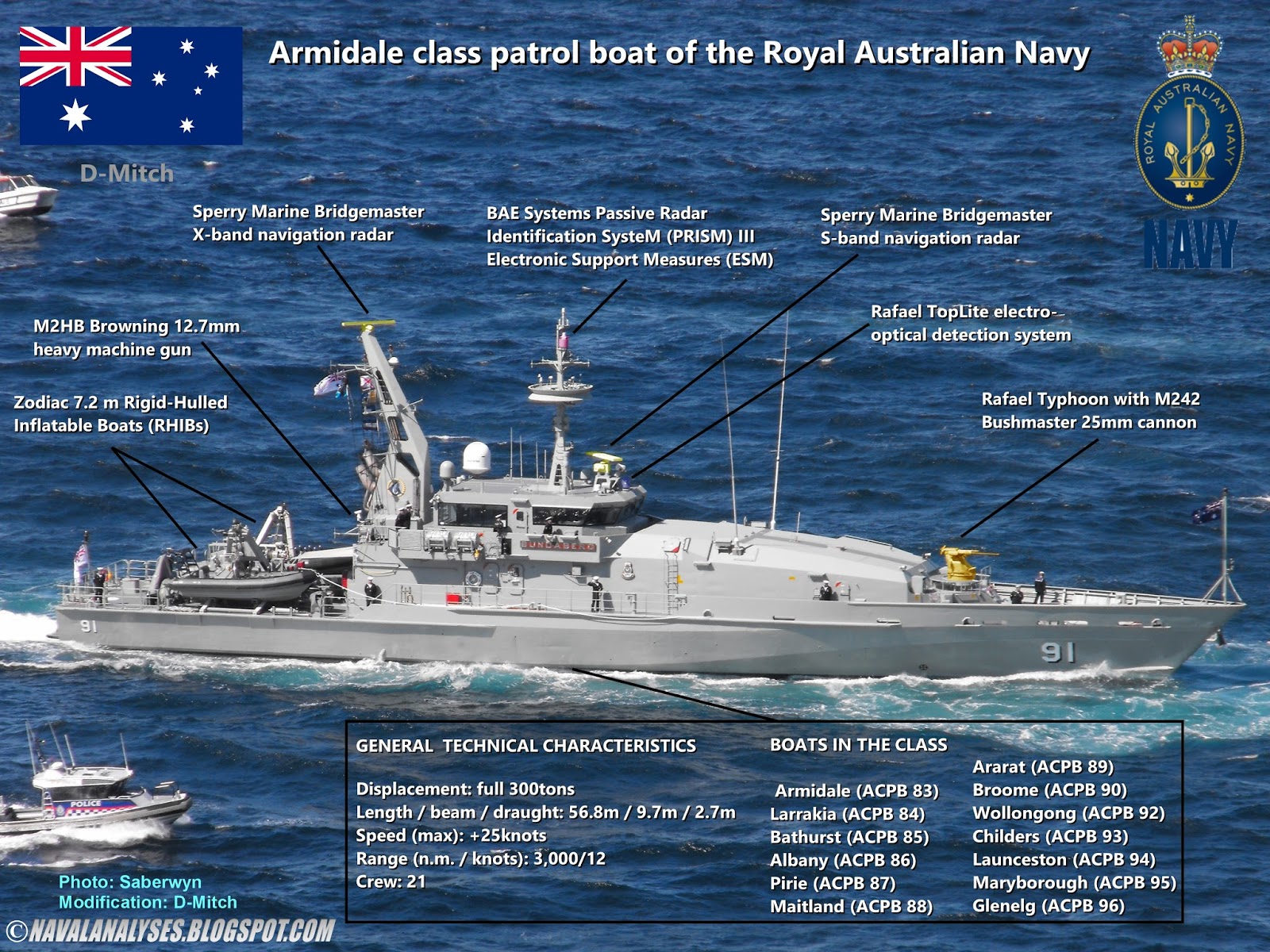Just variegating this question for a Royal Australian Navy Armidale-class patrol boat that has no aircraft or missiles. Like other question, assume a full weekly resupply of only ammunition and fuel.
Armament:
- 1 × Rafael Typhoon stabilised gun mount fitted with a 25 mm (1 in) M242 Bushmaster autocannon
- 2 × 12.7 mm (0.5 in) machine guns
Armidale Class Patrol Boat used for Civilian Support - Naval Technology.
Armidale class weapons
The vessel is armed with a Rafael Typhoon 25mm stabilised naval gun mount with an ATK Bushmaster cannon. Fire control is provided by a Rafael Toplite multi-sensor optronic weapons director. The gun has a traverse range of ±20° and an elevation of -12.5° to +40°30′. The gun has a stabilisation accuracy of 0.2mrad.
"The main roles of the Armidale Class are naval support of civilian authorities."
The line of fire stabilisation allows hostile targets to be engaged with precision in high sea state conditions and at appropriate stand-off distance. The gunner can choose to operate the gun manually or automatically. The ship also carries two 12.7mm machine guns.
Sensors and communications
The Armidale Class patrol boats are equipped with low-light optical surveillance and a Bridgemaster E radar operating at E, F and I bands.
BAE Systems Australia’s passive radar identification system (PRISM III) electronic support measures provides detection, direction finding, analysis and classification of radar emissions in the 2GHz-18GHz band.
CEA Technologies has been contracted to supply the modular integrated ships communications suite (ISCS).
To what war do you need to send this patrol boat, before it can decisively impact the course of events? A decisive impact means anywhere from eliminating a major battle in the war to changing who wins the war. Killing one extra opposition soldier does not qualify, because it doesn't quite affect war outcome.
This patrol boat can't impact outcome of WWII? This boat can be penetrated by anti-aircraft guns, let alone battleship and naval artillery, or torpedoed by wolf packs of submarines. Enemy can re-locate and settle underground, or further in land, to evade this boat's radar and technologies.

